

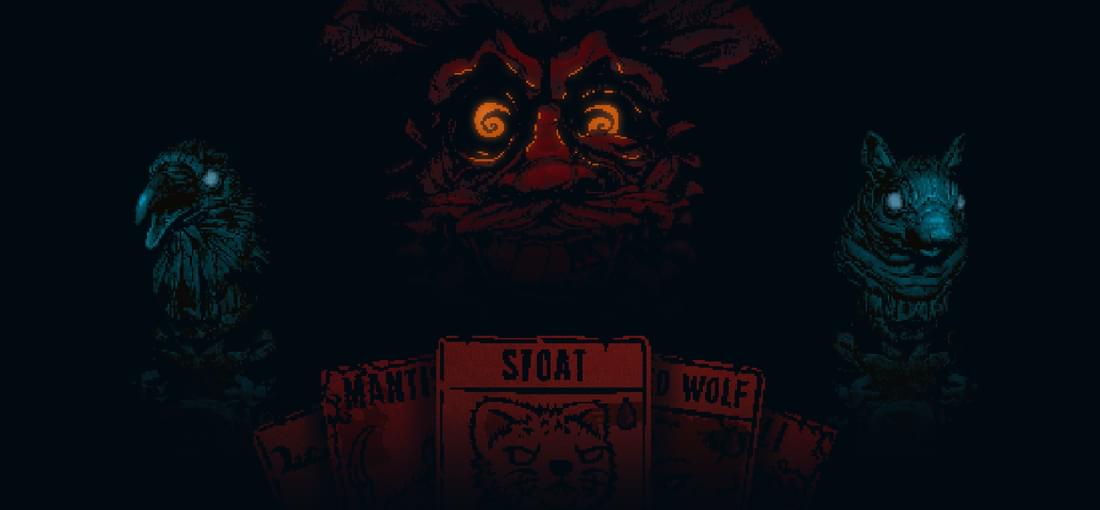
An overly descriptive review would detract from the experience for new players, who should go in blind. I can safely reveal that your likelyhood of enjoying it is probably proportional to your enjoyment of : Deck building mechanics; Diagenetic interfaces; Games where you make a choice, based on limited data, and then discover over the course of the next hour whether you advantaged or hampered yourself; Emergent narrative (ie discover and interface with ideas and things before clarifying their plot relevant origins/purpose); Interweaving layered plots and metanarrative ala House Of Leaves; Creepy, oppressive, or disharmonious esthetics. Feeling bittersweet respect, sympathy, betrayal, or reluctant admiration towards well crafted NPCs. I really enjoyed this game. It is weighed very slightly against the player before accounting for opportunities the player can exploit to re-unbalance things in their favor. There are multiple approaches to building the deck that allow for varied play styles without setting up a single, exclusive 'correct' build. I constantly felt confident that I could win a given interaction if I played wisely, but never felt like I had a match 'in the bag' from the start. Probably in my top 30.
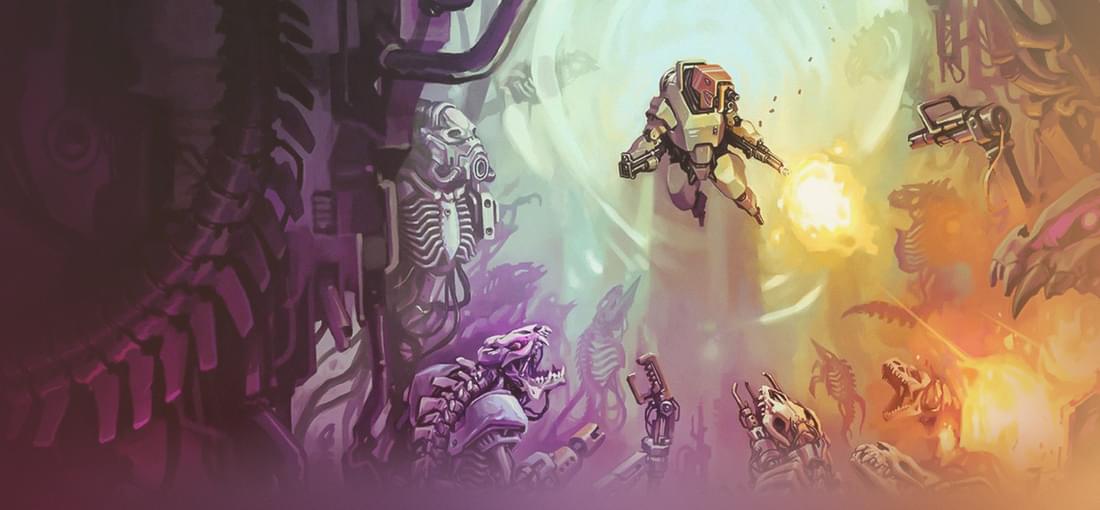
...in the semi-formal "game theory" sense. Cost/Benefit analysis presents itself constantly. The game is essentially a series of heist missions, with partial knowledge ahead of time that allows the player to take a thousand yard view and make an assault plan, then frantic play wherein that plan succeeds, fails catastrophicly, or succeeds only with white nuckled improvisation midway through. Pre mission planning includes the opportunity to burn acquired points for tools that enhance your capabilities for this particular mission. Higher rewards for riskier, but successful, behaviour. A push-your-luck mechanic, but with mid-level pacing such that the player gets to see things slowly fall apart because they trimmed the fat from their gear loadout in just the wrong way. Victory involves destroying one or more defended power cores, or miniboss rooms. Direct assaults are often an option, while targeted strikes elsewhere can make navigation or combat easier. Time is a factor, so "slow and steady" is not a viable option, but there are various approaches remaining, from a death by a thousand (rapid) cuts strategy to a precise, risky Hail Mary knock out blow. And because the maps are procedurally generated, there is not a universally correct answer to this question of how much time should be spent whittling down the ship defenses before going for the jugular. The gameplay itself, once the mission launches, is a frantic but manageable shooter. I'd place it just shy of Bullet Hell territory. It's roughly on par with maybe level five of Warning Forever. The challenge comes from juggling your overall tactical intent with your in the moment gun and run survival. I'd place Cryptark on my Top Ten Games Of GOG, as of late 2021. Near the bottom, but that's still high praise considering what's on offer.
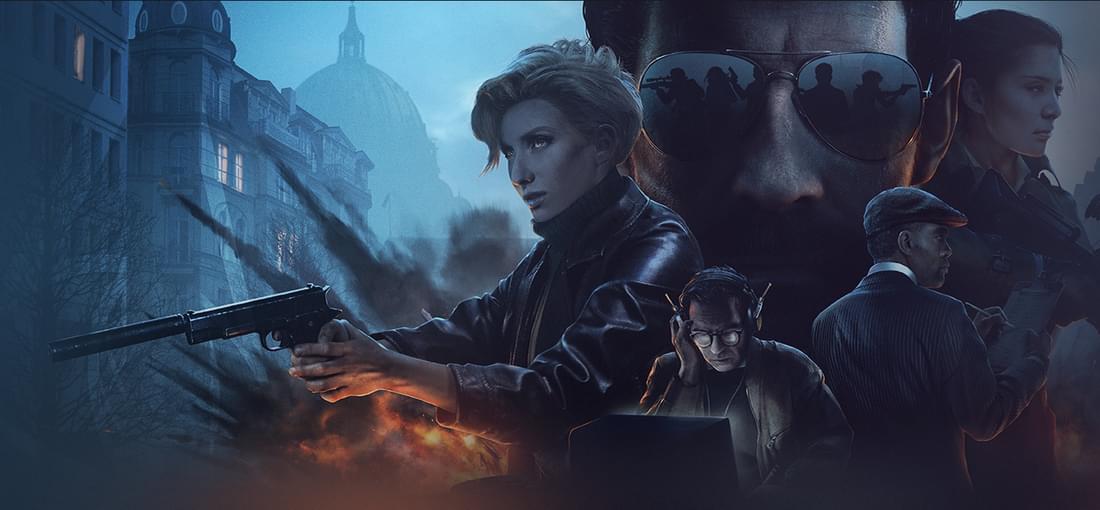
Phantom Doctrine carries cosmetic elements from the XCOM reboot, but plays more like a squad based evolution of Covert Action. I favor games with Push Your Luck mechanics, and this has them in spades. Risk/Reward requires constant balancing in the tactical missions, which involve infiltration and often escalating to rolling gunfights. Rewards scattered across every map assist in the Strategic element later, if retrieved, but require exposing agents to more time on target. Constant re-enforcements and airstrikes once combat kicks off require speed to avoid getting overrun, but speed means taking chances, and taking chances means inevitably making mistakes and getting broadsided. Almost anything you do before the enemy becomes aware of your presence involves taking on the risk of being discovered. Getting offsite involves not just clustering agents at a pre-determined point, but calling in evac, which takes several turns to arrive. If the Evac vehicle is on site more than a few turns, you advance a doom clock (enemy intel on your actions) that hurts your Strategic level play. Strategic play offers limited assets that must be balanced, usually with "payment in advance" for advantages or to avoid difficulties. If you want a sufficiently large team to stay on top of everything, you'll run a larger risk of bringing in an enemy mole. Cashflow is largely enhanced by way of very expensive initial investments. Body modifications can enhance your agents, but conflicts between drugs means taking advantageous meds now may prevent the use of better meds later. My big problems with X-Com (the reboot) are largely solved here. Strategic play is vastly improved and doesn't feel irrelevant with eventually victory assumed. Cameras rotate freely, not to fixed angles. Choices have weight, failure has cost, but messing up a few times doesn't require a full restart. It's good, is what I'm saying.
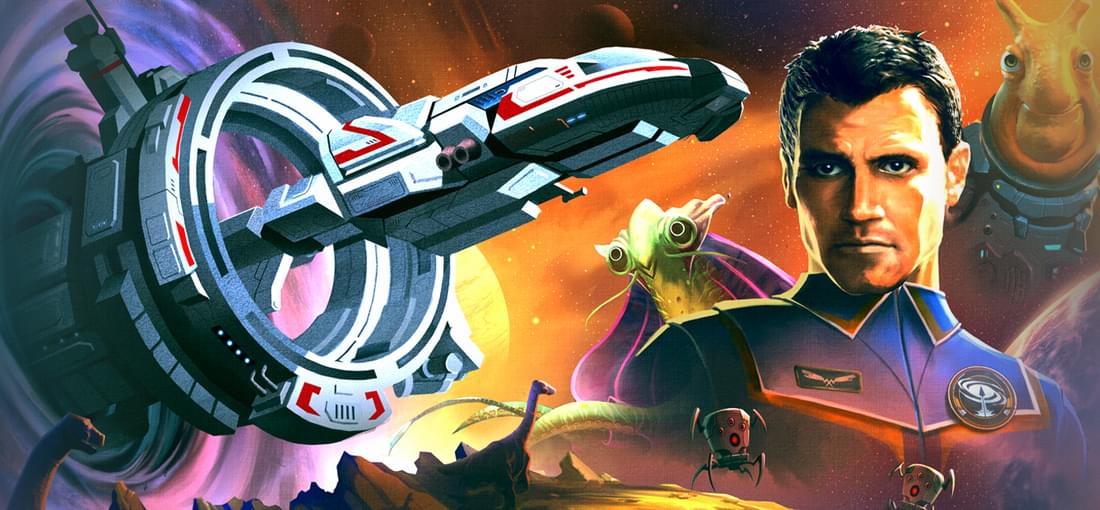
Viewed in isolation, Star Control Origins is a fun galactic romp, an exploration RPG with the standard-ish heroic faire. Emulates the form of Star Control 2 : The UrQuan Masters. Here's how SC:Origins compares to it: +Better graphics +Well executed alien races. Familiar but not repetitive +Fixed the combat to hyperspace death spiral +Improved combat arenas, presentation, controls, and an option to let the computer fight for you. +More interesting hyperspace travel, allowing sneak peaks into solar systems so the player isn't making exploratory choices as blindly. +Generally less prominent 'seams' between modes of play. -The dangers of exploration have *all* been substantially eased back. To the point of being ignorable.* -The resource budget is extremely generous. Almost ignorable. -The combat AI is prone to taking the tactical approach most likely to see it's ship destroyed without inflicting any damage (ranged units maintain point-blank distance with flamethrower enemies, spinning in a corner of the map without firing a shot, etc). Not always, not infrequently. -There's no longer a mid-flight escape option. Fleeing can only be done after a ship is destroyed. That's a whole cost analysis minigame removed. In summation, SC:O is well made and well polished, fine moment to moment, but not any challenge. There's no scrappy underdog feeling. It hits the beats of SC2 but missed the fulfillment of hardships overcome. It's 2012 X-Com. If you loved 1994, you see what's missing. Maybe you have room for both? * The "violent overlord" race is less competent in a fight, fuel is a joke, replacement landers cost pennies, the aliens are placed in the galaxy in the most human-friendly way possible, the...thing...that happens... is repeatedly foreshadowed in real time instead of a slap-your-head-moment (and in my playthrough was easily overcome without particularly focusing on it's danger) and the nonstandard travel option is both immediately unlocked and intuitive to use.
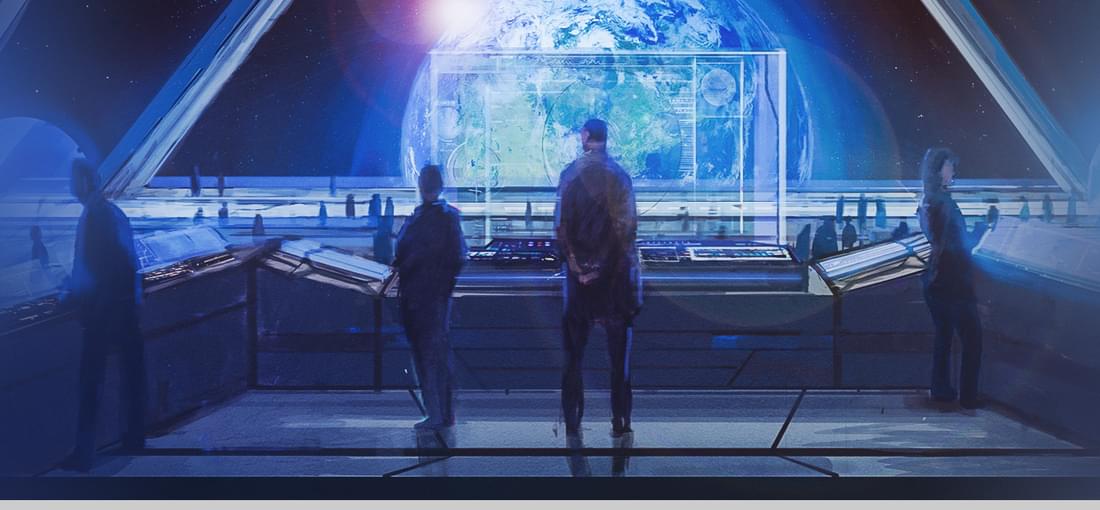
Unfortunately, this is a hard game to like. There's a progression system, both in game instances through upgrades and between sessions through ship unlocks, but both reward grinding rather than skill, reflexes, or strategy. The upgrade system is so well balanced that almost any choices are the "right ones" as long as the player spends their loot. Ships unlock sequentially based on time invested, not completing any kind of objectives or meeting benchmarks. There is a power creep from one ship to the next, but no interesting balance between them. The prudent decision is always the last ship unlocked. By the second mission a player's fleet is nigh-on invulnerable. I warped into each sector, hit the "fast forward" setting, and read a book until it was finished from halfway through the second mission to the end of the game. Completing the whole game takes a few hours. Battles are slow, enemy ships are faster than yours, there's no collision damage, and all the ship weapons of note are omni-directional. Positioning on the ones that do have a limited arc is irrelevant, because enemy ships "hop" over yours back and forth, exposing themselves to any given firing path fairly evenly. There is a repair/upgrade tradeoff presented, but space stations repair ships for free, so it's actually an upgrade/boredom tradeoff, with the player deciding whether to waste ten seconds backtracking or to burn scrap needlessly. A boredom economy in a game is a bad sign. The plot is as standard as they come. It raises 2 interesting questions (Why does the lady-race hate mankind? What is the ancient evil?) but doesn't answer either. Occasionally a close-combat designed ship will warp on top of yours from a place you cannot observe and destroy you before any options become available. I never lost and saw a way that an alternative playstyle or decision would have saved me. It always seemed arbitrary. Try FTL instead. There's nothing to this one but going through the motions.
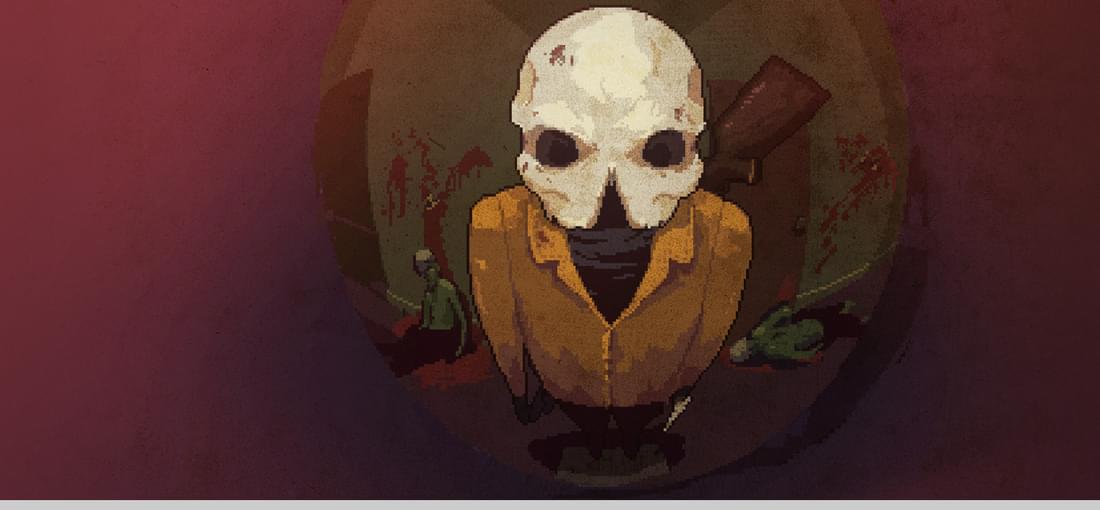
Deadbolt is very much in the flavor of Gunpoint, Ronin, and to a lesser extent Hotline Miami. The lost time incurred when you die is about on par with Gunpoint, but the odds of coming out on top of any given fight are closer to Hotline Miami. The bullet economy is very tight, which forces strategic play, but bullet drift / inaccuracy means having runs where, although the exact same encounter would result in victory if the Random Number Generator sided with the player, Reaper runs out of ammo prematurely and won't be seeing the victory screen. The pacing being closer to Gunpoint, these failures get annoying. I would place Deadbolt on par with Hotline Miami Two, and below Ronin, Hotline One, Not A Hero, and Gunpoint. If you've played those already and are itching for some more of the same this is a viable option, but it feels bland and unfocused in direct comparison with any of those.
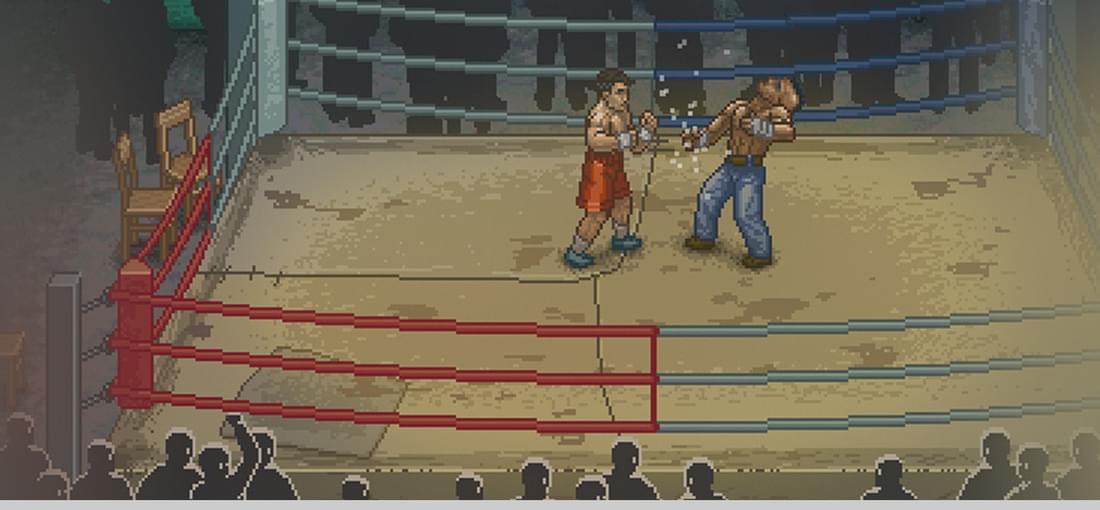
Punch Club plays as an entertaining grind-fest with the trappings of a puzzle game. You have 'skills' which are more beneficial against some foes than others, and can only go into a fight with a certain number activated. Skills are permanently unlocked with experience from actual fights, whereas training events up your three stats, which decrease daily. That decrease makes it an interesting time-management experiment in the early game, with many small choices effecting your overall proficiency. (Buy expensive, healthy food but lose time walking everywhere because you can't afford the bus? Spend a few days at work, losing stat points but getting enough money to work out at the gym instead of at home? Buy an expensive protein bar for an energy boost at the gym, or eat a steak at home and have to pay admittance fees again?) There's also a good number of new locations, sub-quests, and the like to unlock as events progress, offering the joy of exploration. The game has solid 'bones'. Having said that : - The humor is of the 'call out' variety with very few actual jokes. The love interest's name is Adrian, which is a reference to Rocky. That's par for the stabs as humor - if it made you smile, you'll be fine. Otherwise, expect a little flailing about in nostalgia. - The carefully balanced economy of the game is thrown to the wind towards the end of the second act. - You'll spend a LOT of time watching the protagonist work out, gradually getting to the point where they can win that next big fight, but game-changing events strike through white-on-black single lines of text or five, ten second cutscenes. - You can't lose, and there's not enough variety to justify replaying. There's no sense of risk, just gradual steady progression rarely interrupted by off the wall set pieces. - It ends in a hard cut, after a nonsensical 'reveal' during what should be the climax, with a "To Be Continued" slapped on.